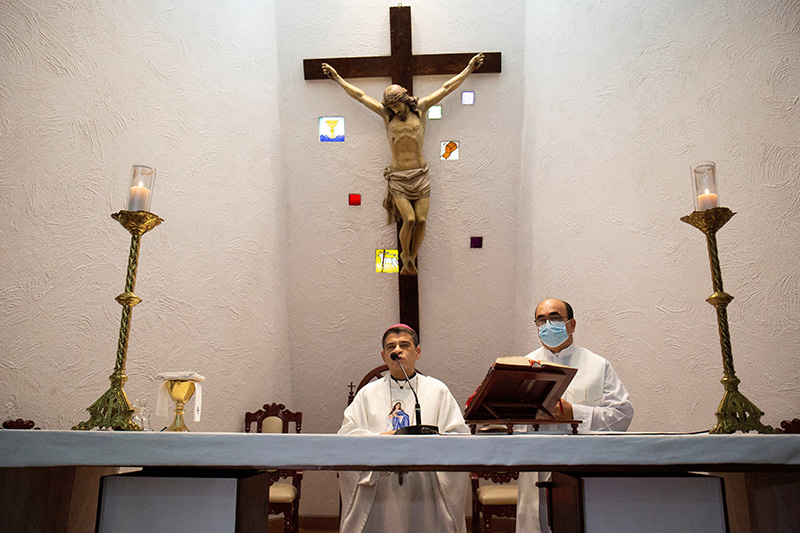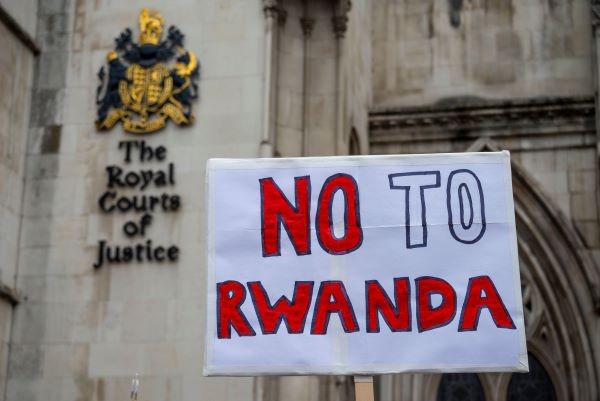The Jesuit Refugee Service has renewed its calls for the government to scrap its plans to deport migrants to Rwanda, despite a High Court ruling that the controversial scheme is legal.
Religious leaders, including the bishops’ conference’s lead for migrants and refugees, have appealed for more effective solutions to the migrant crisis.
The court ruled on Monday that the plans did not breach the United Nations’ refugee convention or human rights laws, but said that the cases of eight refugees brought before it had not been “properly considered” and needed to be assessed again.
Sarah Teather, the UK director of the Jesuit Refugee Service (JRS), said the plans were “cruel” and should be dropped regardless of the ruling.
“The fact that it has been deemed to be legal does not change the fact that it is immoral,” she said.
“It will create fear and trauma for people who deserve our care.”
She continued: “We have a responsibility to offer sanctuary to refugees. And yet the government is seeking to shirk the responsibility by forcing the transfer of asylum seekers to a much poorer and less stable country on another continent.”
The then-home secretary Priti Patel first announced the plan to send migrants to Rwanda in April, as part of a “migration and economic development partnership” with the Rwandan government.
The first flight of the scheme was scheduled for 14 June but was suspended after a ruling by the European Court of Human Rights that legal challenges to the policy would first need resolution in the UK courts.
The government has repeatedly stated its commitment to the Rwanda scheme, with the current home secretary Suella Braverman saying it was her “dream” to see a flight of deportees leave the UK for East Africa.
Monday’s ruling on the cases of eight migrants established the legality of the policy while finding fault with its execution. The prime minister Rishi Sunak welcomed the ruling as a “common sense position”.
Mrs Braverman has said that she expects the case to progress to the Supreme Court. No flight can depart until all legal appeals are exhausted, following the European court’s ruling.
Refugee charities and religious leaders have criticised the plan since its inception, and repeated their condemnation in recent weeks.
Speaking in the House of Lords earlier this month, the Archbishop of Canterbury, Justin Welby, said that the policy was not an effective solution to the migrant crisis: “It’s a mistake and it will be a failure”.
On Monday, the Anglican Bishop of Durham, Paul Butler, emphasised that Church objections had never been about the strict legality of the policy.
“It’s a moral, ethical objection to the policy,” he said.
Responding to episcopal criticism of the plans, the Conservative MP Jonathan Gullis said that bishops should not “be using the pulpit to preach from”.
“I don’t think unelected bishops in the House of Lords should be preaching about politics,” he said on Radio 4’s Today programme.
“I think they should be looking in-house at the wide abuse claims, and the Archbishop of Canterbury should be spending his time focusing on the Church’s reputation.
“I sadly think that there are too many people using the pulpit to preach from, and actually I think they’re out of touch with the overall majority of this great country.”
Last Friday, 16 December, Bishop Paul McAleenan, the lead on migrants and refugees for the Catholic bishops of England and Wales, called for action to address the humanitarian crisis in the English Channel, where four people died in a single incident on 14 December.
Bishop McAleenan, an auxiliary in the Archdiocese of Westminster, demanded “that the solution to this humanitarian crisis must include greater international cooperation, more safe routes for migrants and refugees, better-resourced search and rescue operations, and meaningful action to tackle the evils of human trafficking”.
“We hear the cry of those leaving their homelands in search of a better life,” he said, “and we reject the failed notion that stricter border controls are the way to prevent further tragedies.”
“May those who died rest in peace and their families be consoled.”



 Loading ...
Loading ...